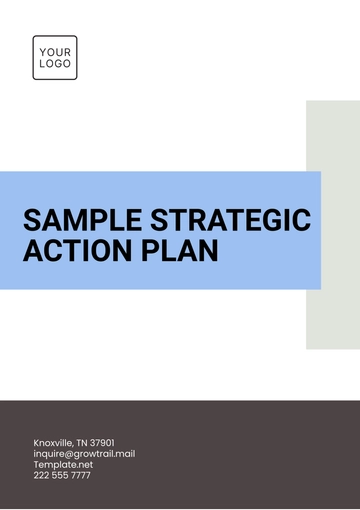Free Diabetes Management Plan

Prepared by: [Your Name]
Company: [Your Company Name]
Date: [Insert Date]
I. Introduction
Diabetes is a chronic condition that affects how the body processes blood sugar (glucose). Effective diabetes management is critical for maintaining optimal blood sugar levels and preventing complications. The Diabetes Management Plan is designed to help individuals with diabetes manage their condition through lifestyle changes, medication management, blood glucose monitoring, and education. This plan aims to empower individuals to take control of their health and improve their quality of life.
II. Objectives
Maintain Optimal Blood Glucose Levels
Ensure blood glucose levels are within the target range to prevent complications.Promote Healthy Lifestyle Choices
Encourage healthy eating, regular physical activity, and stress management to support overall well-being.Optimize Medication Management
Provide clear guidelines for medication adherence and management.Prevent Complications
Educate on the importance of regular health screenings and self-care to prevent diabetes-related complications.Provide Education and Support
Offer ongoing education about diabetes, self-management, and emotional support to help individuals cope with their condition.
III. Key Components of the Plan
A. Blood Glucose Monitoring
Strategies:
Blood Glucose Testing:
Test blood glucose levels at least 2-4 times daily (or as recommended by a healthcare provider), including before meals and at bedtime.
Keep a log of blood glucose levels to track trends and make adjustments to treatment as needed.
Use a continuous glucose monitor (CGM) if prescribed to provide real-time data on glucose levels throughout the day.
Target Range:
Work with a healthcare provider to determine individual target blood glucose ranges, typically:
Before meals: 80-130 mg/dL
1-2 hours after meals: Less than 180 mg/dL
Adjusting Treatment:
Adjust insulin doses or oral medications based on blood glucose readings, exercise, meals, and other factors as guided by the healthcare provider.
B. Healthy Eating and Nutrition
Strategies:
Balanced Diet:
Consume a balanced diet with a focus on whole foods, including plenty of vegetables, fruits, lean proteins, whole grains, and healthy fats.
Limit refined carbohydrates, processed foods, and sugary drinks that can cause blood sugar spikes.
Carbohydrate Counting:
Learn to count carbohydrates and understand their impact on blood glucose levels.
Work with a registered dietitian or nutritionist to create an individualized meal plan that aligns with lifestyle and diabetes goals.
Meal Timing:
Eat regular meals and snacks to help maintain stable blood sugar levels throughout the day.
Avoid skipping meals, which can cause blood sugar to drop or spike.
Portion Control:
Focus on portion control to avoid overeating and to maintain a healthy weight.
Use smaller plates and measure servings to keep portions in check.
Hydration:
Drink plenty of water throughout the day to stay hydrated and support overall health.
Avoid sugary drinks and limit alcohol consumption, which can affect blood sugar levels.
C. Physical Activity
Strategies:
Regular Exercise:
Engage in at least 150 minutes of moderate-intensity aerobic activity (such as brisk walking, cycling, or swimming) each week, as recommended by the American Diabetes Association (ADA).
Include muscle-strengthening activities (such as weightlifting or resistance bands) at least twice a week.
Monitor Blood Glucose During and After Exercise:
Check blood glucose levels before and after exercise to prevent hypoglycemia (low blood sugar).
Keep a fast-acting carbohydrate source (like glucose tablets or fruit juice) available during exercise in case blood sugar drops too low.
Consistency:
Maintain a consistent exercise routine to help regulate blood glucose and improve overall fitness.
Aim for the same type and intensity of exercise each week to establish a routine.
D. Medication Management
Strategies:
Insulin Management:
For individuals with type 1 or type 2 diabetes who require insulin, follow the prescribed insulin regimen, including basal (long-acting) and bolus (short-acting) doses.
Administer insulin as directed by the healthcare provider, and ensure correct timing relative to meals and blood sugar levels.
Adjust insulin doses as necessary based on blood glucose monitoring, activity level, and food intake.
Oral Medications:
If prescribed, take oral medications (such as metformin, sulfonylureas, or GLP-1 receptor agonists) as directed by the healthcare provider.
Be aware of potential side effects and monitor for signs of hypoglycemia or other adverse reactions.
Medication Adherence:
Set reminders for medication times to ensure consistent adherence to the treatment regimen.
Keep a medication log to track doses and any side effects.
Regular Check-ups:
Attend regular medical appointments to review and adjust medications as needed.
Work with a healthcare team (doctor, diabetes educator, dietitian) to optimize medication therapy and management.
E. Preventing Complications
Strategies:
Regular Health Screenings:
Schedule annual or more frequent screenings for complications such as:
Eye exams (to check for diabetic retinopathy).
Foot exams (to detect neuropathy or wounds that could lead to infection).
Kidney function tests (to detect early signs of diabetic nephropathy).
Cholesterol and blood pressure checks (to monitor cardiovascular health).
Early Intervention:
Address any signs of complications early by working closely with healthcare providers.
Manage comorbid conditions (such as hypertension, high cholesterol, or obesity) to reduce the risk of diabetes-related complications.
Vaccinations:
Stay up to date with vaccinations, including the annual flu vaccine, pneumococcal vaccine, and any others recommended by a healthcare provider.
F. Emotional and Psychological Support
Strategies:
Addressing Diabetes Distress:
Understand that managing diabetes can be emotionally challenging, and feelings of stress, frustration, or burnout are common.
Engage in open discussions with a diabetes care team to express any concerns and receive support.
Support Groups:
Participate in support groups or online communities for individuals with diabetes to share experiences, challenges, and strategies.
Mindfulness and Stress Management:
Practice mindfulness, meditation, or relaxation techniques to reduce stress and improve emotional well-being.
Engage in activities such as yoga or deep breathing exercises to help manage diabetes-related stress.
IV. Monitoring and Evaluation
A. Key Performance Indicators (KPIs)
Blood Glucose Control:
Maintain blood glucose levels within target ranges as consistently as possible.
Weight Management:
Maintain a healthy weight and body mass index (BMI) through proper nutrition and regular exercise.
Medication Adherence:
Consistently take prescribed medications as directed.
Prevention of Complications:
Prevent or manage complications through regular screenings and proactive care.
B. Evaluation Methods
Regular self-assessment of blood glucose levels.
Monthly progress tracking and check-ins with a healthcare provider.
Annual health check-ups and screenings for complications.
V. Conclusion
The Diabetes Management Plan is a comprehensive approach to managing diabetes effectively. By focusing on blood glucose monitoring, nutrition, physical activity, medication management, and emotional support, individuals can significantly improve their health outcomes and quality of life. Regular check-ups, proactive care, and ongoing education are key to preventing complications and achieving long-term success in diabetes management.
- 100% Customizable, free editor
- Access 1 Million+ Templates, photo’s & graphics
- Download or share as a template
- Click and replace photos, graphics, text, backgrounds
- Resize, crop, AI write & more
- Access advanced editor
You may also like
- Finance Plan
- Construction Plan
- Sales Plan
- Development Plan
- Career Plan
- Budget Plan
- HR Plan
- Education Plan
- Transition Plan
- Work Plan
- Training Plan
- Communication Plan
- Operation Plan
- Health And Safety Plan
- Strategy Plan
- Professional Development Plan
- Advertising Plan
- Risk Management Plan
- Restaurant Plan
- School Plan
- Nursing Home Patient Care Plan
- Nursing Care Plan
- Plan Event
- Startup Plan
- Social Media Plan
- Staffing Plan
- Annual Plan
- Content Plan
- Payment Plan
- Implementation Plan
- Hotel Plan
- Workout Plan
- Accounting Plan
- Campaign Plan
- Essay Plan
- 30 60 90 Day Plan
- Research Plan
- Recruitment Plan
- 90 Day Plan
- Quarterly Plan
- Emergency Plan
- 5 Year Plan
- Gym Plan
- Personal Plan
- IT and Software Plan
- Treatment Plan
- Real Estate Plan
- Law Firm Plan
- Healthcare Plan
- Improvement Plan
- Media Plan
- 5 Year Business Plan
- Learning Plan
- Marketing Campaign Plan
- Travel Agency Plan
- Cleaning Services Plan
- Interior Design Plan
- Performance Plan
- PR Plan
- Birth Plan
- Life Plan
- SEO Plan
- Disaster Recovery Plan
- Continuity Plan
- Launch Plan
- Legal Plan
- Behavior Plan
- Performance Improvement Plan
- Salon Plan
- Security Plan
- Security Management Plan
- Employee Development Plan
- Quality Plan
- Service Improvement Plan
- Growth Plan
- Incident Response Plan
- Basketball Plan
- Emergency Action Plan
- Product Launch Plan
- Spa Plan
- Employee Training Plan
- Data Analysis Plan
- Employee Action Plan
- Territory Plan
- Audit Plan
- Classroom Plan
- Activity Plan
- Parenting Plan
- Care Plan
- Project Execution Plan
- Exercise Plan
- Internship Plan
- Software Development Plan
- Continuous Improvement Plan
- Leave Plan
- 90 Day Sales Plan
- Advertising Agency Plan
- Employee Transition Plan
- Smart Action Plan
- Workplace Safety Plan
- Behavior Change Plan
- Contingency Plan
- Continuity of Operations Plan
- Health Plan
- Quality Control Plan
- Self Plan
- Sports Development Plan
- Change Management Plan
- Ecommerce Plan
- Personal Financial Plan
- Process Improvement Plan
- 30-60-90 Day Sales Plan
- Crisis Management Plan
- Engagement Plan
- Execution Plan
- Pandemic Plan
- Quality Assurance Plan
- Service Continuity Plan
- Agile Project Plan
- Fundraising Plan
- Job Transition Plan
- Asset Maintenance Plan
- Maintenance Plan
- Software Test Plan
- Staff Training and Development Plan
- 3 Year Plan
- Brand Activation Plan
- Release Plan
- Resource Plan
- Risk Mitigation Plan
- Teacher Plan
- 30 60 90 Day Plan for New Manager
- Food Safety Plan
- Food Truck Plan
- Hiring Plan
- Quality Management Plan
- Wellness Plan
- Behavior Intervention Plan
- Bonus Plan
- Investment Plan
- Maternity Leave Plan
- Pandemic Response Plan
- Succession Planning
- Coaching Plan
- Configuration Management Plan
- Remote Work Plan
- Self Care Plan
- Teaching Plan
- 100-Day Plan
- HACCP Plan
- Student Plan
- Sustainability Plan
- 30 60 90 Day Plan for Interview
- Access Plan
- Site Specific Safety Plan





























